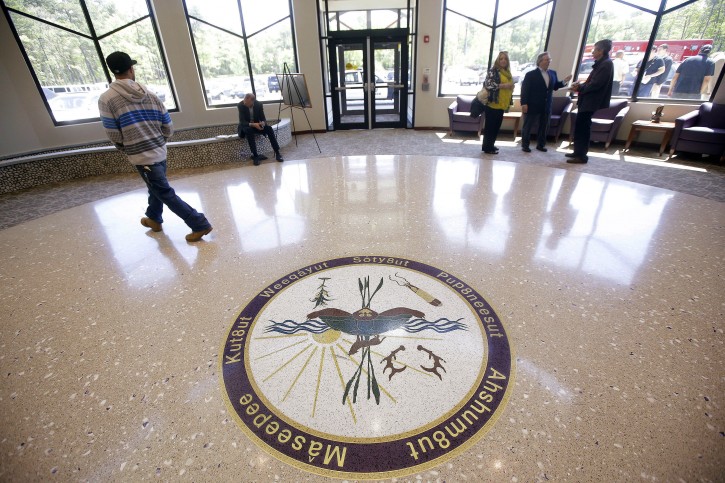
Boston – Native American tribes have been steadily gaining lands under President Barack Obama’s administration.
Nearly 400,000 acres have been placed into trust for tribes since Obama took office in 2009, according to data from the Department of the Interior’s Bureau of Indian Affairs.
And more lands set aside for tribes are likely on the way.
The president has pledged to place a total of 500,000 acres into trust for tribes before his tenure ends. That’s more than double the roughly 233,000 acres placed into trust during the prior tenure of President George W. Bush.
John Dossett, general counsel to the D.C.-based National Congress of American Indians, said the administration has been more proactive than prior ones in speeding up an application process that can sometimes take decades.
But it remains to be seen whether the next administration will have the same commitment, he said. Roughly 525,000 acres of land that tribes are seeking to place into trust are still pending decisions, according to the interior department.
“This administration has really heard from tribes that the process is much too slow,” Dossett said. “It can certainly be better, though. It should happen much, much faster.”
Native American lands collectively represent about 56 million acres — a territory roughly the size of Minnesota, Dossett said.
Generally, getting land placed into trust requires tribes purchase or otherwise acquire rights to land and then petition the federal government for the special status. If placed into trust, the land is tax exempt, eligible for federal programs for business development, housing and other uses.
C. Matthew Snipp, director of the Native American studies program at Stanford University, said the process isn’t without controversy.

“It’s always been controversial, gaming or not, because it removes land from the local tax rolls,” he said. “One way of looking at this is that this is just a process of righting past wrongs, and for local governments, what goes around, comes around.”
The Citizens Equal Rights Alliance, an opposition group fighting some of the recent decisions, said it’s generally not opposed to the decisions, especially when they involve lands already under federal control, like national parks.
Its concern lies with the relatively small percentage that involve private lands under state jurisdiction, said Lana Marcussen, a legal consultant for the Wisconsin-based group whose stated mission is to “change federal Indian policies that threaten or restrict the individual rights of all citizens living on or near Indian reservations.”
“This is the constitutional problem of trying to restore what should have happened with the Indians,” Marcussen said. “If the federal government has the legal authority to rewrite what the process was supposed to be it has the legal authority to change all the rights to everyone else too.”
She said the group, which is involved in legal challenges against the Oneida in upstate New York, is closely watching developments in Massachusetts, where the Department of the Interior created a reservation of over 300 acres for the Mashpee Wampanoag tribe this year.
The tribe, which had acquired the land prior to the decision, had been anxiously awaiting the designation because it’s aiming to build, along with its Malaysian partners the Genting Group, a $500 million Las Vegas-style resort.
The newly designated reservation lands are split into two large tracts, one on its historical home on Cape Cod and another about 50 miles away in Taunton, where the tribe envisions the new casino.
Adam Bond, an attorney representing local residents challenging the decision in federal court, argues that the department can’t legally take land into trust for the tribe because they weren’t federally recognized in 1934 as he suggests the law requires.
Bond also questioned the tribe’s historical ties to Taunton, arguing in his lawsuit that its land claim is based on speculation, not physical evidence like burial sites, artifacts or other archaeological findings.
“The fight is about government getting too big,” he said. “It’s about government going rogue and ignoring its federal mandate.”
The tribe, which became federally recognized in 2007 but traces it ancestors to the Native Americans who negotiated peace with the Pilgrims nearly four centuries ago, declined to comment for this story.
It plans to break ground on the casino early April, despite the pending challenge.
As reported by Vos Iz Neias
